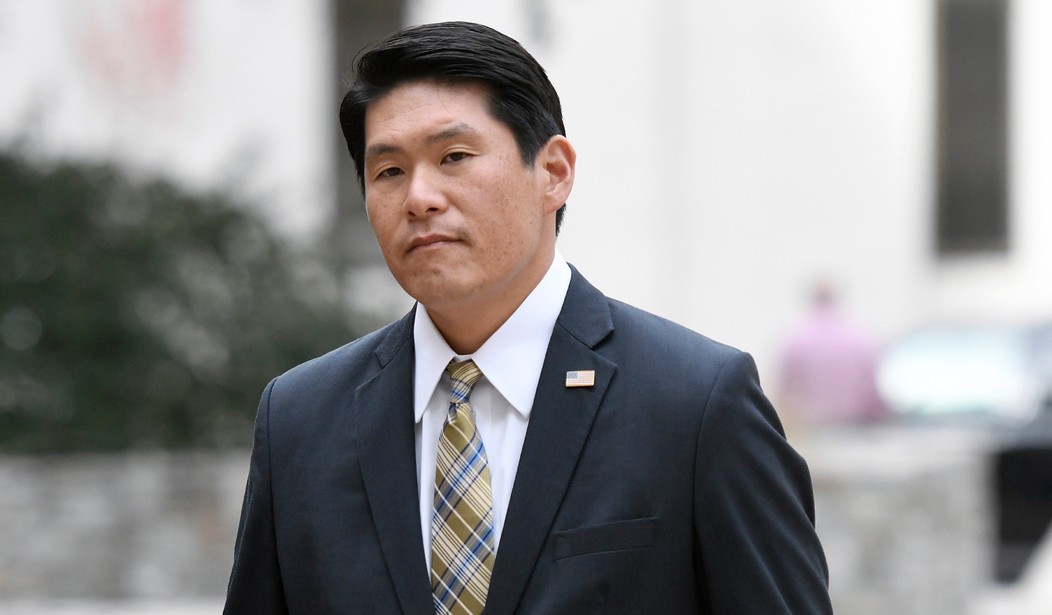Special Counsel Robert Hur will address the “elephant in the room” of President Biden’s poor memory as he testifies to Congress on Tuesday.
Since releasing his 345-page special counsel report concluding there was insufficient evidence to charge the president for his mishandling of classified material, Hur has come under fire from Democrats who took issue with the description of Biden as “a sympathetic, well-meaning, elderly man with a poor memory.”
In his opening remarks, Hur will explain he "needed to show [his] work" and that the inclusion of Biden's memory problems "was necessary and accurate and fair." Emphasis added:
My team and I conducted a thorough, independent investigation. We identified evidence that the President willfully retained classified materials after the end of his vice presidency, when he was a private citizen. This evidence included an audio recorded conversation during which Mr. Biden told his ghostwriter that he had 'just found all the classified stuff downstairs.' When Mr. Biden said this, he was a private citizen speaking to his ghostwriter in his private rental home in Virginia. We also identified other recorded conversations during which Mr. Biden read classified information aloud to his ghostwriter.
We did not, however, identify evidence that rose to the level of proof beyond a reasonable doubt. Because the evidence fell short of that standard, I declined to recommend criminal charges against Mr. Biden. The Department’s regulations required me to write a confidential report explaining my decision to the Attorney General. I understood that my explanation about this case had to include rigorous, detailed, and thorough analysis. In other words, I needed to show my work. Just as I would expect any prosecutor to show his or her work in explaining the decision to prosecute or not.
The need to show my work was especially strong here. The Attorney General had appointed me to investigate the actions of the Attorney General’s boss, the sittingPresident of the United States. I knew that for my decision to be credible, I could not simply announce that I recommended no criminal charges and leave it at that. I needed to explain why. [...]
There has been a lot of attention paid to language in the report about the President’s memory, so let me say a few words about that. My task was to determine whether the President retained or disclosed national defense information “willfully”—meaning, knowingly and with the intent to do something the law forbids. I could not make that determination without assessing the President’s state of mind. For that reason, I had to consider the President’s memory and overall mental state, and how a jury likely would perceive his memory and mental state in a criminal trial. These are the types of issues prosecutors analyze every day. And because these issues were important to my ultimate decision, I had to include a discussion of them in my report to the Attorney General.
The evidence and the President himself put his memory squarely at issue. We interviewed the President and asked him about his recorded statement, “I just found all the classified stuff downstairs.” He told us that he didn’t remember saying that to his ghostwriter. He also said he didn’t remember finding any classified material in his home after his vice presidency. And he didn’t remember anything about how classified documents about Afghanistan made their way into his garage.
My assessment in the report about the relevance of the President’s memory was necessary and accurate and fair. Most importantly, what I wrote is what I believe the evidence shows, and what I expect jurors would perceive and believe. I did not sanitize my explanation. Nor did I disparage the President unfairly. I explained to the Attorney General my decision and the reasons for it. That’s what I was required to do.
Recommended
The hearing will begin at 10 a.m. and can be viewed below:
























Join the conversation as a VIP Member